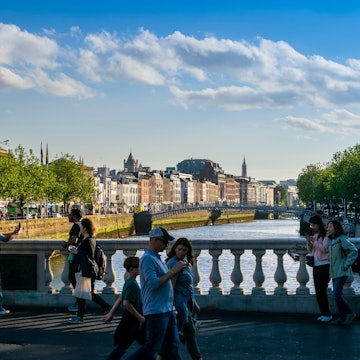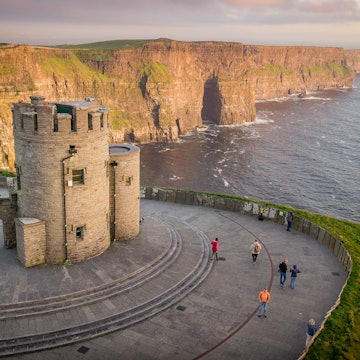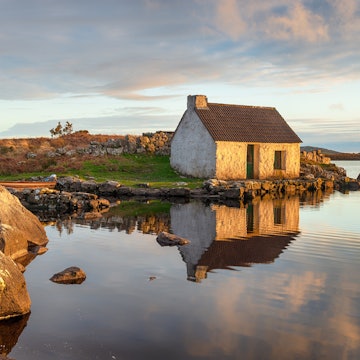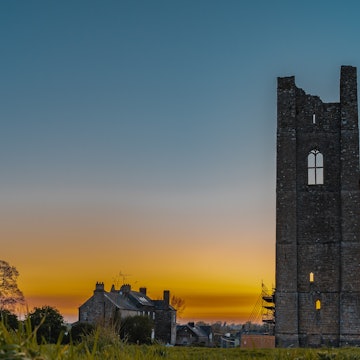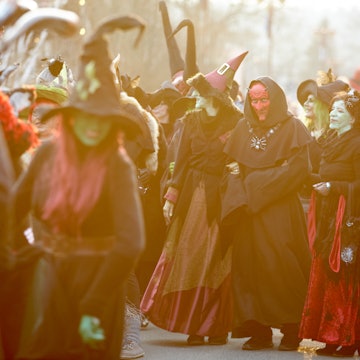
Why I hiked to the top of the Swiss Alps to play a gig last summer
Apr 6, 2020 • 5 min read

I took a deep breath, wiped the sweat from my brow, and grasped the rusted metal bar that had been drilled into the rock face. Above me, my brother had just disappeared over the top of the mountain. My heart was hammering through my chest. The mandolin in my backpack shifted slightly as I put my weight onto the makeshift ladder. Ahead of me, a cloudy glacial lake shone in the sunlight. I was on my way to a cabin 2,200 metres above sea level in the Swiss Alps to play a concert. The crowd was waiting. The gig was sold out. We could not fail.

I had first met our guides René Reusser and Mirjam Huber the year before in the picturesque town of Brienz, where they had hosted myself and my brother Richie. Together we write and perform music under the name Cry Monster Cry, and had been invited over from Ireland to play a music festival on the banks of the lake. René and Mirjam had kindly put us up in their house, and we instantly hit it off. They struck me as kind, genuine people full of adventure and spirit. When the gig was finished, we sat down for a beer by the shoreline and René pitched an idea to us; to come back in a few months to play a concert in The Gaulihütte - a hiking cabin that had been built high in the Alps in 1895.
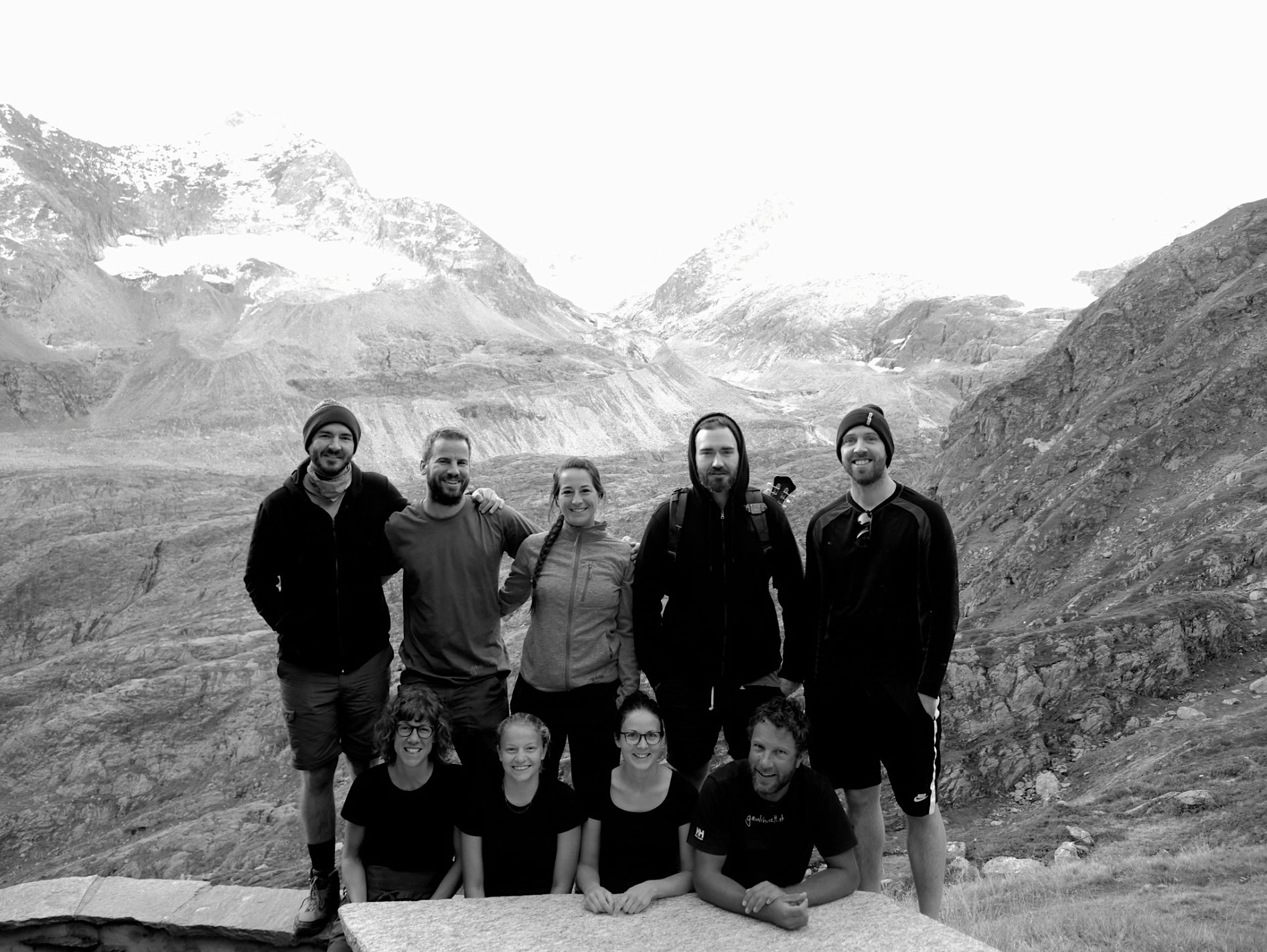
As he described what would be involved, we sat in silence, taking it all in. We would be leaving before sunrise, taking with us everything that would be needed for a two-day hike (one there and one back), including our instruments and equipment for the show. Microphones, along with speakers and a PA system, would be flown up by helicopter a few weeks beforehand, when the pilot made his monthly food run. We would trek through forests and fields, over narrow, high-altitude pathways and down through alpine valleys. It would take anywhere from six to ten hours to get there, and if anything were to go wrong, our only option would be to get to a position where a helicopter could reach us. When he had finished running through everything, we agreed.
That September, we travelled back to Brienz to start the journey. We woke early, and made our way to the trailhead. It was shrouded in grey morning mist. I had my mandolin in a backpack, and René had enlisted the help of his experienced friend Fredu to carry my heavy, metal-backed banjo. Richie had his acoustic guitar on his shoulder, and our friend Elijah Egan, a documentary film maker, had two packs of gear and three cameras to capture the journey. René and Mirjam each carried with them huge backpacks full of food, water and clothing for the group. The weather was incredible. The sun came out and stayed with us for the day, and we ate our lunch in an open meadow surrounded by sheep. Breaks were a necessity.

Swiss people are well accustomed to hiking, and do it from a very early age. In Ireland, there is nothing that compares to the route we took. Our tallest mountain range (Carrauntoohil is 1038 metres high), is approximately half as tall as the peak we summited, so beforehand there was a tangible sense of trepidation on our part regarding our abilities. Once we started however, I found myself so wrapped up in the experience and the views of nature that my doubts about being able to finish to journey soon dissipated. I learned that the old adage (however clichéd it may be) of putting one foot in front of the other until a job is done really resonated with me throughout the trek, and I was able to just be in the moment.

The only time I even entertained the idea of not being able to go on was thankfully just ten minutes before we caught sight of the cabin over the crest of a mountain. It stood, looking noble, with its red and black painted shutters, and a group of people basked in the sunlight outside drinking cold beers. We collapsed in the shadows, took off our shoes and socks, and joined them for a drink.
We set up and sound checked for the show before taking a brief rest. The whole of the audience, 70 people, had also done the hike, and a group meal was prepared before we played. As evening fell, the windows were thrown open behind us and we performed with the stars as our backdrop. The gig was very special to me, and there was a great sense of community and shared experience throughout it, heightened by the fact that all of us had taken on the task of reaching this place. We slept like the dead that night, knowing that we had another long day ahead of us.

There has been so many take aways for me when I think about this experience. I often cite it silently to myself as proof of my ability when I am doubtful, and it solidified in my mind how the unforgettable can come from pushing ourselves outside of our comfort zone. I count myself lucky to have been able to marry my two passions – travel and music – together in such a way, and to have a film about the trip to look back on in years to come. I was inspired by René Mirjam, and by the people who came to the show, who showed such deep passion for shared experiences and support for creativity and expression.
The documentary about this is called “When The Snow Falls I’ll Be Gone” and is available on YouTube.
You might also enjoy:
The best Lonely Planet Spotify playlists for travellers pining for the road







